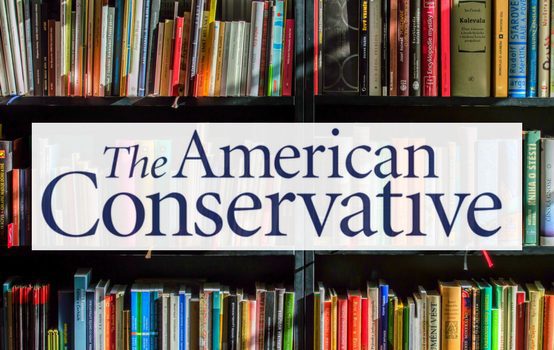TAC Bookshelf: Giving Tom Clancy His Due

Grayson Quay, TAC contributor: In the car, I’ve been listening to Tom Clancy’s Patriot Games (and enjoying it, so it likely won’t be my last Jack Ryan novel). Clancy’s prose is functional and little else, and his characters (especially his villains) tend to be cardboard cutouts. But his plots are thrilling and well-constructed, and his portrayal of American life is worth considering. After all, it’s shared by many.
In the Clancyverse, American intelligence, military, and law enforcement—from the lowliest beat cop to the mightiest admiral—are composed virtually exclusively of honorable men who do their jobs competently and love their families. Even the spooks ordering covert raids overseas weigh the morality of it so thoroughly that it’s hard not to sympathize. Clancy’s dramatis persona is overstuffed with military veterans, suggesting a preference for a Starship Troopers polity in which those who have demonstrated a willingness to sacrifice in service to the state are those best suited to run it. With the decline of military veterans in Congress, we’re getting further from that ideal with each passing year. Along with Clancy’s approbation and humanization (which a Foucauldian would call excessive) of the organs of state power comes his total fascination with the technical achievements of the military-industrial complex. The surveillance apparatus is always cool, never a threat to American liberty, nor are fighter jets ever presented as pork-barrel boondoggles.
The same essential wholesomeness underlies his entire portrayal of American life. Clancy takes pains to represent reporters (at least the ones who emerge from the maligned category of reporters and establish themselves as individuals), doctors, priests and other incidental characters as competent and dutiful. Jack Ryan’s sexy, silver-spoon, eye surgeon wife; his working-class values that fit effortlessly into a three-story house overlooking the Chesapeake; and the way he breezily commits what Clancy insists isn’t quite insider trading to make a quick bundle all contribute to Clancy’s vision of the marriage of American purity to American strength. It’s Norman Rockwell meets Norman Schwarzkopf.
And over all of it—with, ah!, bright wings—broods God. Clancy and Ryan are both Irish-American Catholics, and Ryan does make it to Christmas Eve Mass (no word on his weekly attendance), but his internal monologue does not give the impression of a man who has taken “every thought captive.” Religion for Clancy, as for Jane Austen, is less about the radical, transformative Gospel and more about the preservation of civic order and public morality. But despite Clancy’s blithely uncritical view of American militarism and capitalism, I’m not quite ready to write off his treatment of faith as nothing more than hollow civil religion. Clancy’s God does provide an ultimate grounding for values, but he seems to recognize that although deism would theoretically suffice for this purpose, it’s been shown to lack staying power in the absence of a sacramental Church preaching a God at once transcendent and immanent.
Ryan sums it up nicely in The Hunt for Red October when a Russian defector asks him why he believes in God: “[I]f you don’t, what’s the point of life? That would mean Sartre and Camus and all those characters were right—all is chaos, life has no meaning. I refuse to believe that. If you want a better answer, I know a couple priests who’d be glad to talk to you.” There’s something profoundly winsome about that statement. After all, not every layman can be a theologically eloquent mystic, and Clancy is nothing if not an advocate of the active (as opposed to the contemplative) life.
It’s true that the Clancy-Ryan vision of America lacks a prophetic, self-critical element without which even the most virtuous society can turn monstrous. But if Clancy’s excesses in this direction bother me so much, perhaps it’s because—in these postmodern times—my own chest has atrophied at bit. Neither the cop nor the protester has a monopoly on building the Kingdom of God.